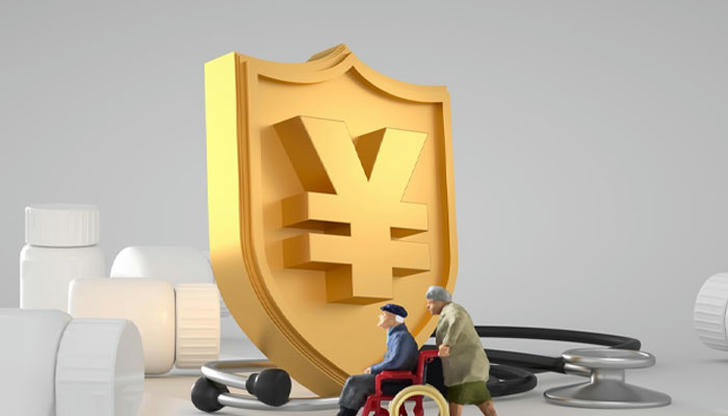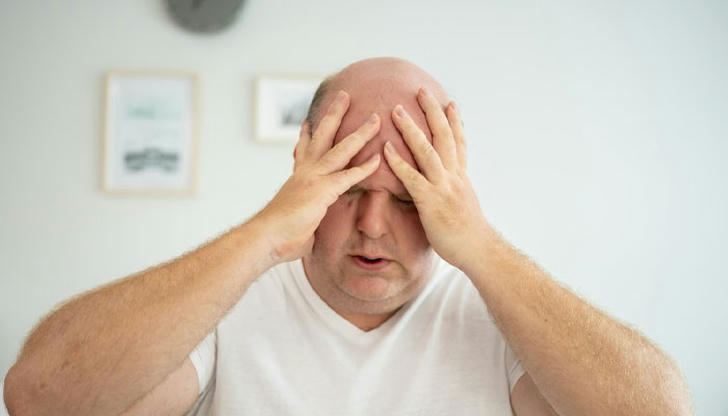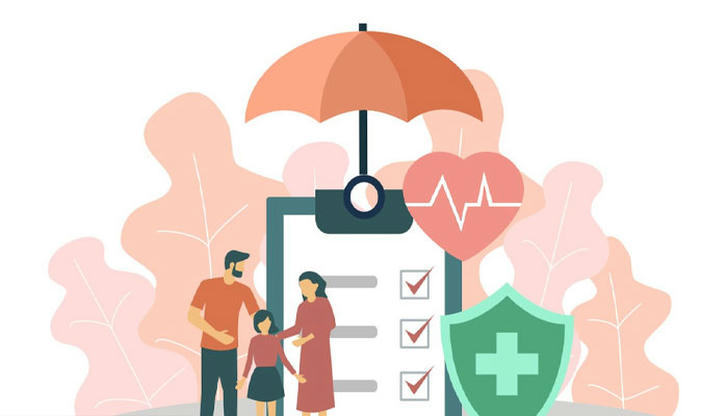The Cost of Going Without Health Insurance: Is It Worth the Risk?

In today’s world, health insurance is more than just a luxury; it’s a necessity. However, millions of people still go without it, either due to financial constraints, lack of understanding, or simply because they feel they don’t need it. While the decision to forgo health insurance might seem like a temporary cost-saving solution, the long-term consequences—both financially and health-wise—are substantial. In this article, we’ll explore the financial and health risks of being uninsured and why it’s not a gamble worth taking.
I. The Financial Consequences of Being Uninsured

One of the most immediate risks of going without health insurance is the potential for skyrocketing medical bills. Without insurance, the cost of even routine healthcare can quickly become overwhelming.
·High Out-of-Pocket Medical Costs
When you don't have health insurance, you're expected to pay the full price for medical services. A simple visit to the doctor, an emergency room visit, or a prescription can cost hundreds to thousands of dollars. If you require a procedure or surgery, the costs can soar even higher. For example, the average cost of an emergency room visit in the United States is upwards of $1,000, and without insurance, you'll be responsible for the entire amount.
For people without insurance, this can lead to significant financial hardship. Many find themselves facing medical bills they simply cannot afford, which leads to a ripple effect of debt and financial instability.
·Debt and Bankruptcy
Medical debt is one of the leading causes of bankruptcy in the United States. When people go without health insurance and face expensive medical bills, they often have no way to pay them. Unable to afford treatment, they may avoid seeing a doctor until their health deteriorates, which often results in more severe health problems that are more expensive to treat.
Even with some payment plans, the stress of mounting debt can have a devastating effect on your financial life, not to mention the strain it places on your emotional well-being. For many, the burden of unpaid medical bills becomes a snowball effect that leads to financial ruin.
·Limited Access to Preventive Care
Another critical downside of not having health insurance is the inability to afford preventive care. Regular check-ups, screenings, and vaccinations can catch health problems early before they become major, costly issues. Without insurance, many people skip these visits altogether, putting themselves at risk for undiagnosed health conditions that could have been treated if caught earlier. The longer you wait to address health concerns, the more expensive and complex treatment becomes in the future.
II. The Health Risks of Being Uninsured

While the financial toll of being uninsured is significant, the health risks are just as concerning, if not more so.
·Delaying or Avoiding Medical Treatment
A lack of insurance often leads people to delay or entirely avoid seeking medical care until it’s absolutely necessary. Without the safety net of insurance, individuals might feel like they can't afford to visit the doctor even when they’re experiencing troubling symptoms. This delay can lead to conditions worsening over time, sometimes making them irreversible or harder to treat.
For example, someone with diabetes may skip doctor visits and ignore rising blood sugar levels, which can lead to complications such as heart disease, kidney failure, or nerve damage. In the absence of insurance, these chronic conditions may escalate to a point where emergency care is required—far more costly and risky than routine treatment.
·Increased Risk of Serious Health Issues
Going without regular check-ups, medical advice, and medications can put you at a higher risk of serious health issues down the line. Many diseases, such as cancer, heart disease, and diabetes, can progress without noticeable symptoms at first. Without health insurance, you may miss out on early detection, when these diseases are most treatable. If not addressed, these health conditions could become life-threatening or require expensive, intensive treatment.
·Lack of Access to Necessary Medications
Another health risk for the uninsured is the inability to afford necessary medications. For individuals with chronic conditions like hypertension, asthma, or arthritis, medications are essential to maintaining their health. Without insurance, the cost of prescriptions can be prohibitive, leading people to skip doses, delay refills, or not take medications at all. This can result in health complications that could have been prevented with proper medication.
III. Long-Term Consequences of Being Uninsured

While the immediate risks of going without insurance are clear, the long-term consequences can be far-reaching, affecting both your physical and mental well-being.
·Impact on Mental Health
The anxiety of worrying about unaffordable medical bills can take a heavy toll on your mental health. People who are uninsured often live in fear of the possibility that a major health event could leave them financially burdened. This constant stress can lead to anxiety, depression, and other mental health issues. Knowing that you don’t have the financial means to get treatment for a potentially serious illness creates an ongoing sense of unease and uncertainty.
·Chronic Health Problems
Skipping regular visits to the doctor or ignoring minor health issues can lead to the development of chronic health problems. Health conditions that might have been treated easily in the early stages can become chronic and harder to manage as time goes on. Whether it’s untreated high blood pressure or a neglected back injury, these problems can worsen over time and cost significantly more to treat when they require emergency care.
·Impact on Families and Dependents
The consequences of being uninsured don’t just affect you—they affect your family too. If you’re the primary breadwinner or caretaker in your household, being uninsured can create financial strain that trickles down to those who rely on you. A major health crisis, like a heart attack or stroke, can result in both financial and emotional burdens for your loved ones. If your family members are uninsured as well, their health is also at risk, creating a double-edged sword of potential health and financial crises.
IV. The Benefits of Health Insurance

Despite the financial burden that health insurance premiums might seem to impose, the benefits far outweigh the risks of going without coverage.
·Financial Protection
The primary benefit of health insurance is financial protection. Health insurance shields you from the full brunt of unexpected medical bills. Whether you need an emergency procedure, ongoing treatment for a chronic illness, or just a simple check-up, insurance can dramatically reduce the amount you have to pay out of pocket. With insurance, you’re less likely to face financial devastation due to medical costs.
·Access to Preventive Care
Health insurance makes preventive care affordable. This means you’ll have access to screenings, vaccinations, and wellness checks that can catch health issues before they become major concerns. Early detection saves money and lives, and health insurance plays a critical role in making this possible.
·Peace of Mind
Finally, having health insurance provides peace of mind. Knowing that you have access to medical care when you need it the most helps alleviate stress. It allows you to take care of your health without worrying about the financial burden of medical bills, making it easier to focus on living your life to the fullest.
V. Conclusion

In conclusion, going without health insurance is not a decision to be taken lightly. The financial and health risks of being uninsured are substantial, with potentially lifelong consequences. From unaffordable medical bills to serious health complications, the price of going without coverage is far too high. Health insurance offers financial protection, access to preventive care, and peace of mind—benefits that can significantly improve both your quality of life and your future. If you don’t currently have health insurance, it’s time to consider your options. There are affordable plans available, and getting covered is one of the best ways to protect yourself, your family, and your financial future. Don’t wait until it’s too late—invest in your health today.
